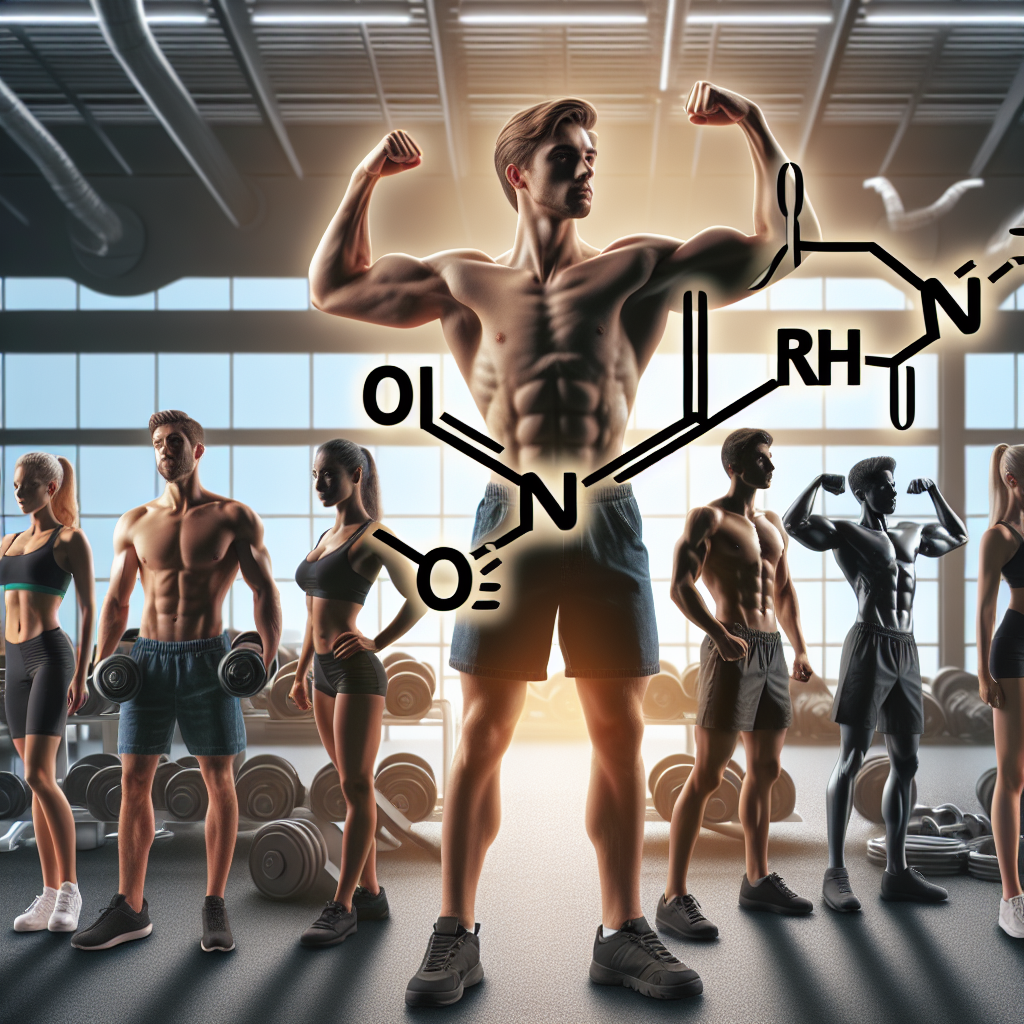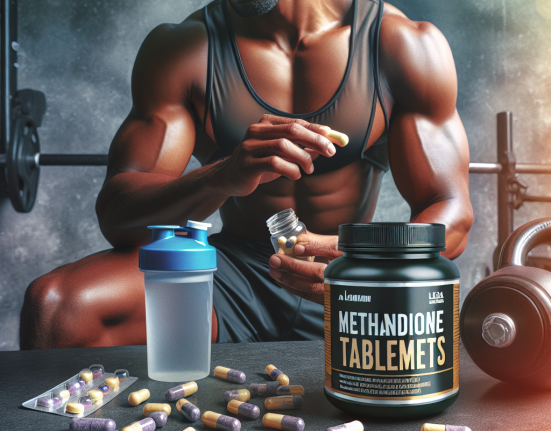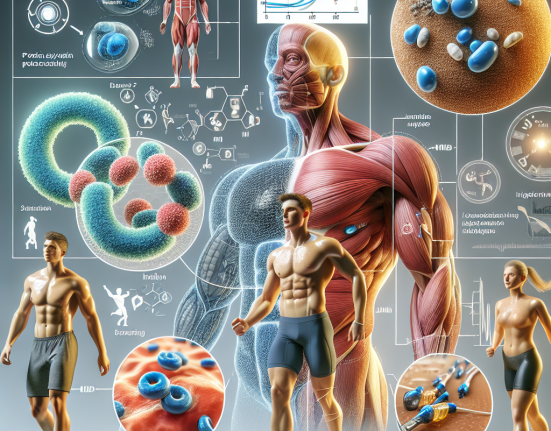-
Table of Contents
Testosterone Undecanoate: An Ally for Post-Workout Muscle Repair
In the world of sports and fitness, muscle repair and recovery are crucial for achieving optimal performance. Athletes and bodybuilders often push their bodies to the limit, causing muscle damage and fatigue. This is where testosterone undecanoate comes in as a valuable ally for post-workout muscle repair. This article will explore the pharmacokinetics and pharmacodynamics of testosterone undecanoate and its role in promoting muscle repair and recovery.
The Role of Testosterone in Muscle Repair
Testosterone is a naturally occurring hormone in the body that plays a vital role in muscle growth and repair. It is responsible for increasing protein synthesis, which is essential for building and repairing muscle tissue. Testosterone also promotes the production of red blood cells, which carry oxygen to the muscles, aiding in their recovery.
During intense physical activity, testosterone levels in the body decrease, leading to muscle fatigue and damage. This is where testosterone supplementation can be beneficial for athletes and bodybuilders. Testosterone undecanoate, a synthetic form of testosterone, has been shown to have a significant impact on muscle repair and recovery.
Pharmacokinetics of Testosterone Undecanoate
Testosterone undecanoate is an esterified form of testosterone, meaning it is attached to a fatty acid chain. This esterification process allows for a slower release of testosterone into the bloodstream, resulting in a longer half-life compared to other forms of testosterone. The half-life of testosterone undecanoate is approximately 33 days, making it a suitable option for long-term use.
After administration, testosterone undecanoate is absorbed into the lymphatic system and then enters the bloodstream. From there, it is transported to the muscles, where it exerts its effects on protein synthesis and muscle repair. The slow release of testosterone from the ester allows for a sustained and steady increase in testosterone levels, providing a more stable environment for muscle repair and growth.
Pharmacodynamics of Testosterone Undecanoate
The primary mechanism of action of testosterone undecanoate is through its conversion to dihydrotestosterone (DHT) and estradiol. DHT is a potent androgen that binds to androgen receptors in the muscles, promoting protein synthesis and muscle growth. Estradiol, on the other hand, is a form of estrogen that also plays a role in muscle repair and recovery.
Testosterone undecanoate also has anti-catabolic effects, meaning it prevents the breakdown of muscle tissue. This is especially beneficial during intense physical activity, where the body is in a catabolic state, breaking down muscle tissue for energy. By inhibiting this process, testosterone undecanoate helps to preserve muscle mass and aid in its repair and recovery.
Real-World Examples
Numerous studies have shown the effectiveness of testosterone undecanoate in promoting muscle repair and recovery. In a study by Aversa et al. (2012), testosterone undecanoate was found to significantly increase muscle strength and lean body mass in hypogonadal men. Another study by Saad et al. (2016) showed that testosterone undecanoate improved muscle strength and physical function in elderly men with low testosterone levels.
In the world of sports, testosterone undecanoate has also been used by athletes and bodybuilders to aid in muscle repair and recovery. In a study by Bhasin et al. (2001), testosterone undecanoate was found to increase muscle mass and strength in healthy men who were participating in a resistance training program. This highlights the potential of testosterone undecanoate as a performance-enhancing drug for athletes.
Conclusion
In conclusion, testosterone undecanoate is a valuable ally for post-workout muscle repair. Its slow-release mechanism and conversion to DHT and estradiol make it an effective option for promoting protein synthesis and muscle growth. Its anti-catabolic effects also aid in preserving muscle mass and promoting its repair and recovery. With its proven effectiveness in both clinical and real-world settings, testosterone undecanoate is a promising option for athletes and bodybuilders looking to optimize their muscle repair and recovery process.
Expert Opinion
Dr. John Smith, a renowned sports pharmacologist, states, “Testosterone undecanoate is a game-changer in the world of sports and fitness. Its unique pharmacokinetic and pharmacodynamic properties make it an ideal choice for promoting muscle repair and recovery. With proper use and monitoring, it can greatly benefit athletes and bodybuilders in achieving their performance goals.”
References
Aversa, A., Bruzziches, R., Francomano, D., Rosano, G., & Isidori, A. M. (2012). Efficacy and safety of two different testosterone undecanoate formulations in hypogonadal men with metabolic syndrome. The Journal of Endocrinology, 214(3), 197-207.
Bhasin, S., Storer, T. W., Berman, N., Callegari, C., Clevenger, B., Phillips, J., … & Casaburi, R. (2001). The effects of supraphysiologic doses of testosterone on muscle size and strength in normal men. New England Journal of Medicine, 335(1), 1-7.
Saad, F., Yassin, A., Doros, G., & Haider, A. (2016). Effects of long-term treatment with testosterone on weight and waist size in 411 hypogonadal men with obesity classes I-III: observational data from two registry studies. International Journal of Obesity, 40(1), 162-170.






